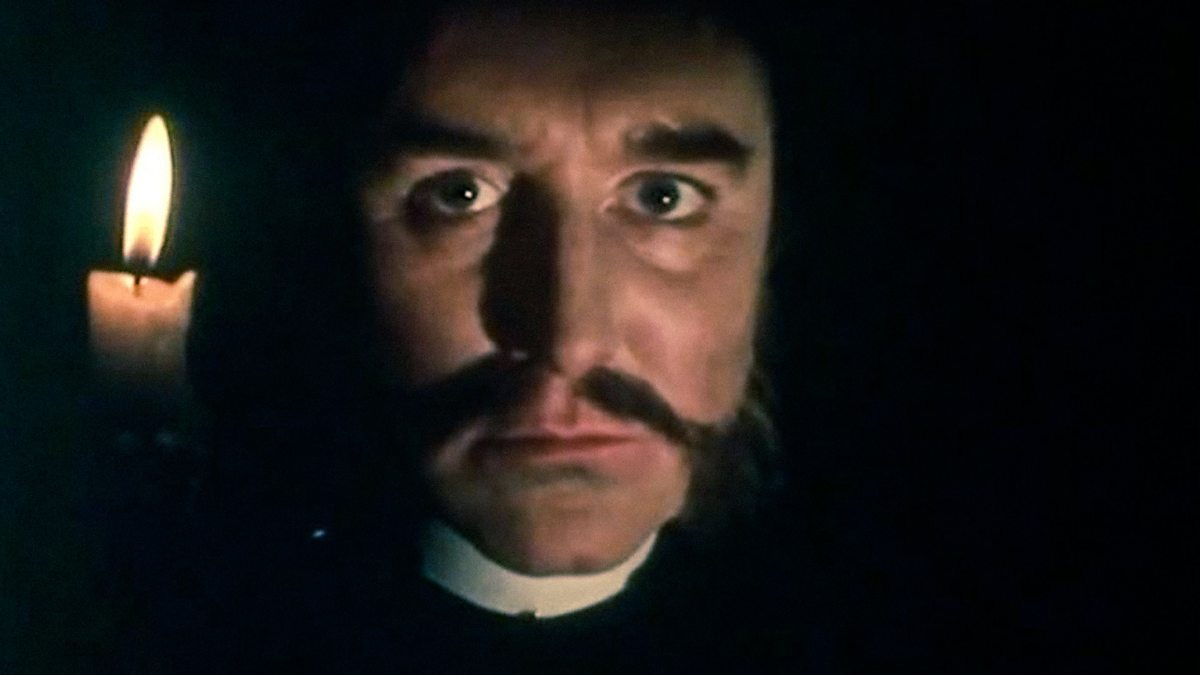The Mezzotint (1986)
Are you sitting comfortably? Then I’ll begin...

A bonus Christmas post for paid subscribers:
I can’t think of anything nicer than to be read to at Christmas. Which also explains the popularity of audiobooks. At any time of the year. One August, I drove down to St Mawes from London (a round trip, there and back again of nine hours) listening to an audio recording of The Great Gatsby, and it was terrific; the boredom of the drive (albeit alleviated by Stonehenge) vanishing into a world of yellow Rolls-Royces, hydroplanes in Long Island Sound, ash heaps and the all-seeing eyes of Dr T. J. Eckleburg. Some books (and The Hobbit — like a Nordic saga — immediately springs to mind) are just meant to be read aloud. The Pickwick Papers is also a handy cure for insomnia. Is there a complete, unabridged audiobook of The Remembrance of Things Past? Now, that would be something.
They used to read to us at my Prep School. An enlightened policy — I was lucky. A gift which has never left me, and for that, I am grateful. By ‘they’, I mean the strict and, with hindsight, rather good-looking Miss Bewsey and the eccentric, barmy and gloriously bonkers Mr Daintree (God rest their souls wherever they are now), who read to us aloud: the works of C. S. Lewis, J. R. R. Tolkien, Sir Arthur Conan Doyle, Robert Louis Stevenson and Rosemary Sutcliff; the detective stories of Francis Durbridge and Edgar Allan Poe, and those wonderful tales of mythology and legend as retold by the splendid antiquarian and biographer of Lewis Carroll, Roger Lancelyn Green, and published by Puffin Books: King Arthur and His Knights of the Round Table (1954), Tales of the Greek Heroes (1958), The Adventures of Robin Hood (1956) and Myths of the Norsemen (1960).
And as you may have gathered, I am a fan of the ghost story. Especially at Christmas. Between 1971 and 1978, the BBC broadcast a dramatised ghost story every Christmas Eve — A Ghost Story for Christmas — a noble tradition revived in recent times by Mark Gatiss. Five of the original films were based on the stories of M. R. James, the antiquarian, scholar, Provost of Eton and master of the ghost story, with five directed by Lawrence Gordon Clark. Gordon Clark sounds like an interesting man: a film director, producer, writer and author, also responsible for Casting the Runes (1979), a further James adaptation starring Jan Francis, episodes of Flambards (1979) and A Pattern of Roses (1983), featuring the first-ever screen appearance of Helena Bonham Carter, ideally cast as a spooky Victorian ghost child, in Whistler white dress and quivering eyebrow. Both Flambards and A Pattern of Roses are based on books by the late K. M. Peyton.
In many ways, all this was typical of the 1970s, a more literate and literary age, or at least (with only three television channels) for the mainstream. Published anthologies were popular, too, spine-tingling tales of horror and the supernatural, as peddled by Pan, Fontana, and William Kimber. I collect them myself.
Last Christmas, I covered The Stalls of Barchester (1971), one of the best of the M. R. James television adaptations, starring the excellent Robert Hardy; one of my earliest posts, which you can read by clicking the link. But this year, I’m pointing a long, gnarled finger at something a little bit different. A sort of Jackanory for Grown Ups. M. R. James ghost stories read straight to camera by fruity thespians in suitably donnish, theatrical sets. In the excitement surrounding the original BBC Ghost Stories for Christmas series and the more recent Gatiss revival, it’s sometimes forgotten that there have been other M. R. James adaptations, too, which, for some reason, don’t seem to get mentioned in the same breath.
Keep reading with a 7-day free trial
Subscribe to Luke Honey's WEEKEND FLICKS. to keep reading this post and get 7 days of free access to the full post archives.




